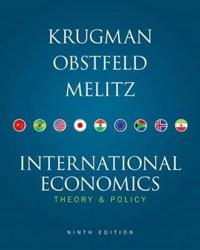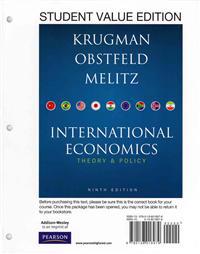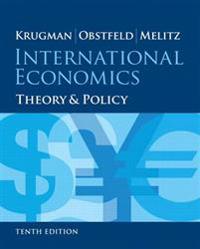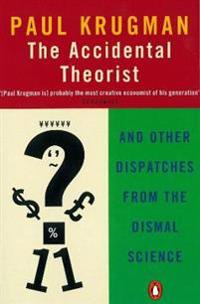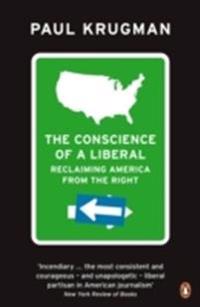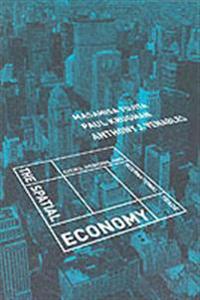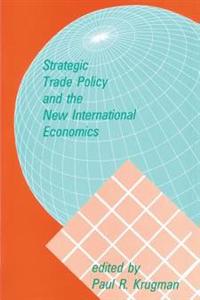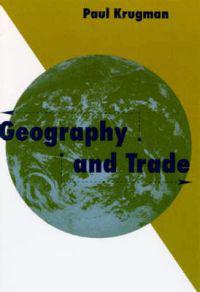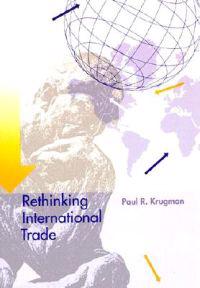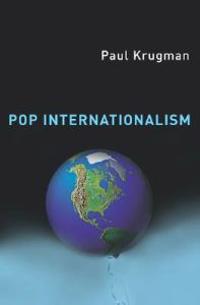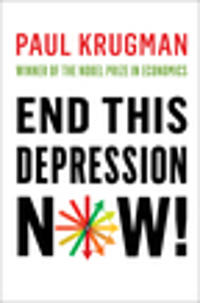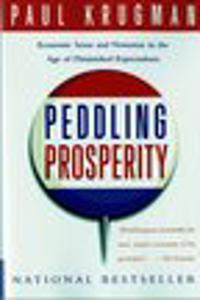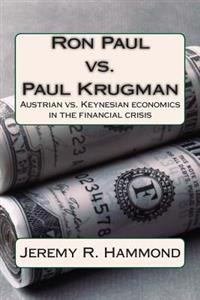International Economics (Inbunden)
avPaul R. Krugman, Maurice Obstfeld, Marc Melitz
ISBN: 9780132146654 - UTGIVEN: 201012Nobel Prize winning economist Paul Krugman, renowned researcher Maurice Obstfeld, and new co-author Marc Melitz of Harvard University, continue to set the standard for International Economics courses with the text that remains the market leader in the U.S. and around the world. International Econom[...]
International Economics (Inbunden)
avPaul R. Krugman, Maurice Obstfeld, Marc J. Melitz
ISBN: 9780133423648 - UTGIVEN: 2014-01For courses in International Economics, International Finance, and International Trade A balanced approach to theory and policy applications International Economics: Theory and Policy provides engaging, balanced coverage of the key concepts and practical applications of the two main topic areas of[...]
The Accidental Theorist (Storpocket)
avPaul R. Krugman
ISBN: 9780140286861 - UTGIVEN: 199906Paul Krugman has made a reputation for himself by telling us the truth about economics however unlikely it may seem and however little we want to believe it. In this collection of sharp, witty essays, Krugman tackles bad economic ideas from across the political spectrum, giving us clear-eyed insight[...]
The Conscience of a Liberal (Storpocket)
avPaul R. Krugman
ISBN: 9780141035772 - UTGIVEN: 200901In "The Conscience of a Liberal", Paul Krugman, one of the US' most respected economists and outspoken commentators, lays out his vision of a New Deal for a fairer society. After the Second World War it seemed that, in the West, society was gradually becoming more equal. Welfare States had been esta[...]
Reform in Eastern Europe (Övrig)
avOlivier Jean Blanchard, Rudiger Dornbusch, Paul R. Krugman, Richard Layard, Lawrence H. Summers
ISBN: 9780262521819 - UTGIVEN: 1993-03-10How can the new governments of Eastern Europe succeed in moving from centrally planned to freemarket economies? This incisive report identifies and describes the major policy choices to be made and discusses what will work and what will not.Reform in Eastern Europe provides a comprehensive, easily r[...]
The Spatial Economy (Häftad)
avMasahisa Fujita, Paul R. Krugman, Anthony J. Venables
ISBN: 9780262561471 - UTGIVEN: 200109Since 1990 there has been a surge of theoretical and empirical work on the spatial aspects of the economy. The text discusses this area of contemporary economics - the "new economic geography". It provides an explanation of the existence of large economic agglomerations at various spatial scales.[...]
Market Structure And Foreign Trade (Pocket)
avElhanan Helpman, Paul R. Krugman
ISBN: 9780262580878 - UTGIVEN: 1987-01-01"Market Structure and Foreign Trade" presents a coherent theory of trade in the presence of market structures other than perfect competition. The theory it develops explains trade patterns, especially of industrial countries, and provides an integration between trade and the role of multinational en[...]
Strategic Trade Policy and the New International Economics (Häftad)
avPaul R. Krugman
ISBN: 9780262610452 - UTGIVEN: 1986-01This volume of original essays brings the practical world of trade policy and of government and business strategy together with the world of academic trade theory. It focuses in particular on the impact of changes in the international trade environment and on how new developments and theory can guid[...]
Geography and Trade (Häftad)
avPaul R. Krugman
ISBN: 9780262610865 - UTGIVEN: 199302"I have spent my whole professional life as an international economist thinking and writing about economic geography, without being aware of it," begins Paul Krugman in the readable and anecdotal style that has become a hallmark of his writings. Krugman observes that his own shortcomings in ignoring[...]
Rethinking International Trade (Häftad)
avPaul R. Krugman
ISBN: 9780262610957 - UTGIVEN: 199405During the 1980s and 1990s a small group of economists challenged traditional wisdom about international trade. This book provides an account of this research programme and traces the key steps in a trade theory that offers new arguments against free trade.[...]
Currencies and Crises (Övrig)
avPaul R. Krugman
ISBN: 9780262611091 - UTGIVEN: 1995-04-12Paul Krugman's first collection of essays, Rethinking International Trade, mounted a spirited assault on established trade theory and proposed an alternative approach to account for increasing returns and imperfect competition. Less theoretical and more embedded in real-world experience, this new co[...]
Pop Internationalism (Häftad)
avPaul R. Krugman
ISBN: 9780262611336 - UTGIVEN: 199704"Pop internationalists" -- people who speak impressively about international trade while ignoring basic economics and misusing economic figures are the target of this collection of Paul Krugman's most recent essays. In the clear, readable, entertaining style that brought acclaim for his best-selling[...]
The Age of Diminished Expectations (Pocket)
avPaul R. Krugman
ISBN: 9780262611343 - UTGIVEN: 1997-08-08Development, Geography And Economic Theory (Pocket)
avPaul R. Krugman
ISBN: 9780262611350 - UTGIVEN: 1997-09-30Why do certain ideas gain currency in economics while others fall by the wayside? Paul Krugman argues that the unwillingness of mainstream economists to think about what they could not formalize led them to ignore ideas that turn out, in retrospect, to have been very good ones. Krugman examines the [...]
End This Depression Now! (Inbunden)
avPaul R. Krugman
ISBN: 9780393088779 - UTGIVEN: 201204The Great Recession is more than four years old - and counting. Yet, as Paul Krugman points out in this powerful volley, "Nations rich in resources, talent, and knowledge - all the ingredients for prosperity and a decent standard of living for all - remain in a state of intense pain." With character[...]
Peddling Prosperity (Häftad)
avPaul R. Krugman
ISBN: 9780393312928 - UTGIVEN: 199505The low-growth years of the past two decades have produced an intense, fascinating debate between economists of rival ideologies. Sadly, they have also produced the policy entrepreneur - the economic snake-oil salesman who offers easy answers to hard problems.[...]
Economics (Pocket)
avPaul R. Krugman, Robin Wells, Kathryn Graddy
ISBN: 9780716799566 - UTGIVEN: 2007-04-30Talks about introductory economics, using a story-telling approach which makes economic theories easier to understand and absorb. This text also brings together an international scope of real world examples and economic theory, which students may apply to their everyday lives.[...]
Ron Paul vs. Paul Krugman: Austrian vs. Keynesian Economics in the Financial Crisis (Häftad)
avJeremy R. Hammond
ISBN: 9781470070724 - UTGIVEN: 2012-04Studyguide for International Economics: Theory and Policy by Krugman, Paul R., ISBN 9780132146654 (Övrig)
avCram101 Textbook Reviews
ISBN: 9781467265959 - UTGIVEN: 2013-01-17Studyguide for International Economics: Theory and Policy by Krugman, Paul R. (Häftad)
avCram101 Textbook Reviews
ISBN: 9781478469865 - UTGIVEN: 2013-05The Return of Depression Economics (Pocket)
avKrugman, Paul R
ISBN: 9781846142390 - UTGIVEN: 2008-12-04Paul Krugman, winner of the 2008 Nobel Prize in economics, shows how today's crisis parallels the events that caused the Great Depression - and explains what it will take to avoid catastrophe. In 1999, in "The Return of Depression Economics", Paul Krugman surveyed the economic crises that had swept [...]

